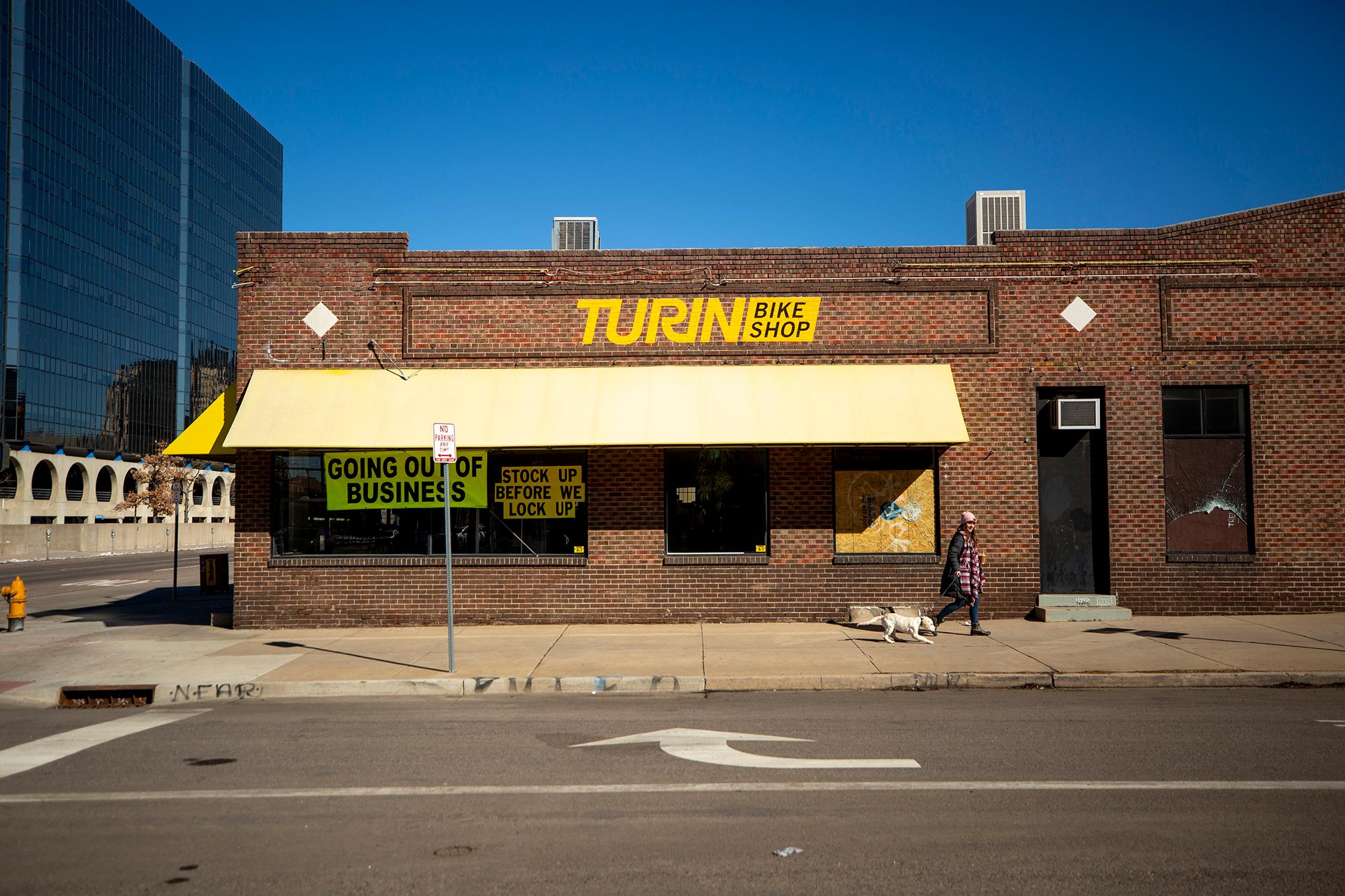On Tuesday, just before noon, a line stretched outside of Turin Bicycles, on the edge of the Golden Triangle. Customers had shown up early to get deals at Denver's oldest bike shop, which will be shuttering its doors in the weeks to come.
Inside, the shelves were sparse. The hundreds of bikes that once clogged the shop were largely gone. Mechanics were working on bikes and co-general managers Mike Stejskal and Dave Wileden were making sure inventory was priced for the sale. Every item sold would help founder and owner Alan Fine in his retirement, which he had to expedite for personal reasons.
The shop announced on social media that it would be closing on Saturday.
"To everyone in Denver's cycling community that we have shared our passion with for over 50 years, our hearts are heavy to announce Turin Bicycles will be closing its doors next month. The ride has been amazing for every one of us who have had the honor of serving you at Turin. We all thank you from the bottom of our hearts," the post read.
"Alan has looked forward to retirement for some time now and the pressure of development is closing in so after 50 years of serving Denver it is time to say goodbye, at least for now," it continued. "Mike and Dave, two long-time employees, are working to re-home the business and hope to return next year in a new location."
The going-out-of-business sale will continue until everything is sold out, and if Stejskal and Wileden reopen, they will be changing the business model.
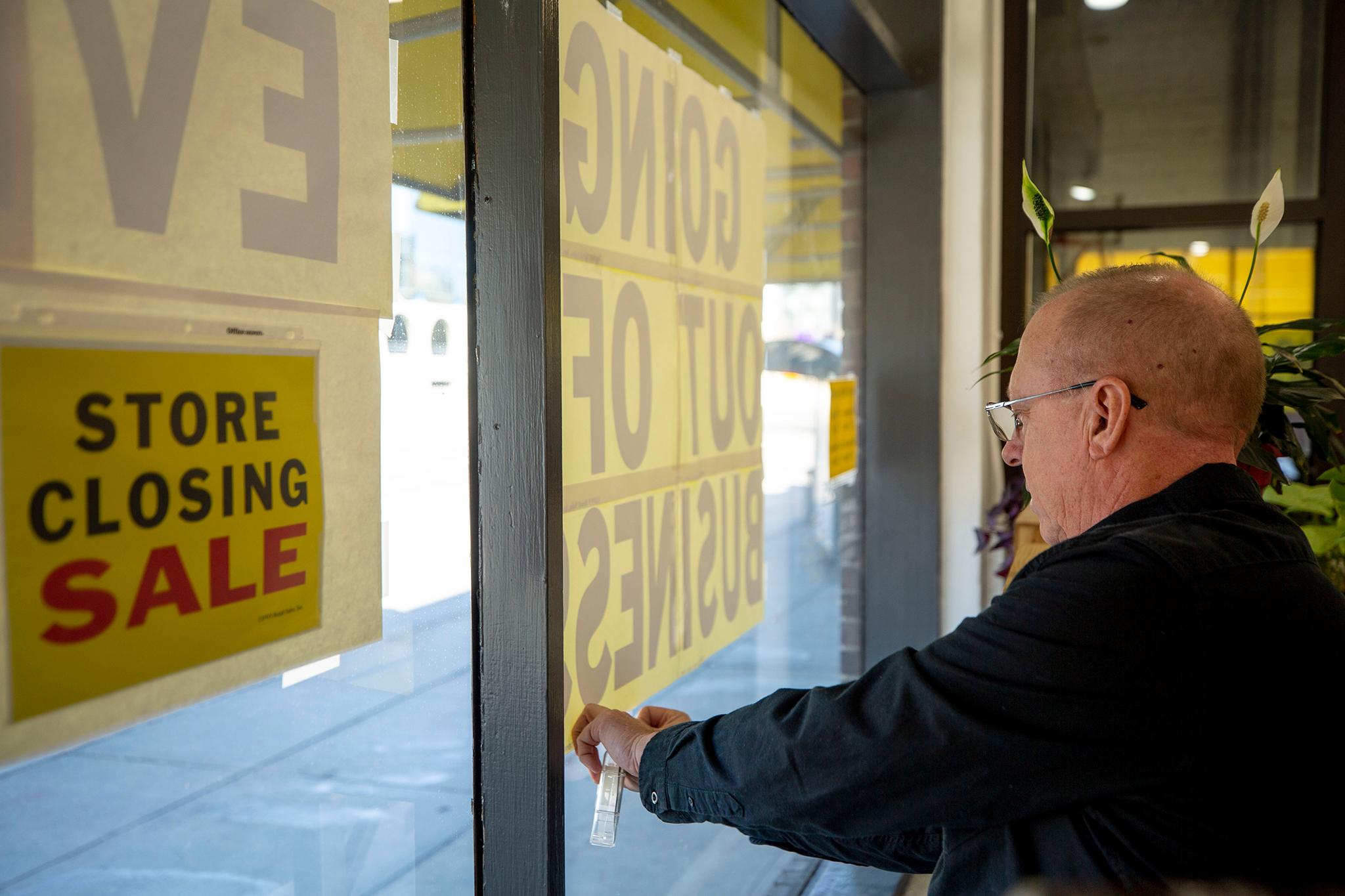
Closing the shop was inconceivable four years ago, when founder and owner Alan Fine signed a letter of intent to sell the shop to Stejskal and Wileden when he retired.
The Denver institution has been around for more than half a century.
Fine founded the store in 1971, hoping to transform Denver's bike culture. He opened Turin's current location at 7th Avenue and Lincoln Street in 1991. For most of that time, Fine owned the building.
In early 2020, just before COVID came to Colorado, he sold to developer Charlie Woolley's St. Charles Town Co. and announced he would be transferring ownership to Stejskal and Wileden. Both, who had worked at the shop for over twenty years, were enthusiastic about the idea. Their entire lives were wrapped up in Turin: their work, their community, their pride.
Then the pandemic hit. And ultimately St. Charles Town Co. decided to raise the rent beyond what the shop could afford, effectively pricing Turin out of the neighborhood.
When Fine had to speed up his retirement, Stejskal and Wileden went to the banks to get a loan to purchase the shop, but so far, they have not succeeded.
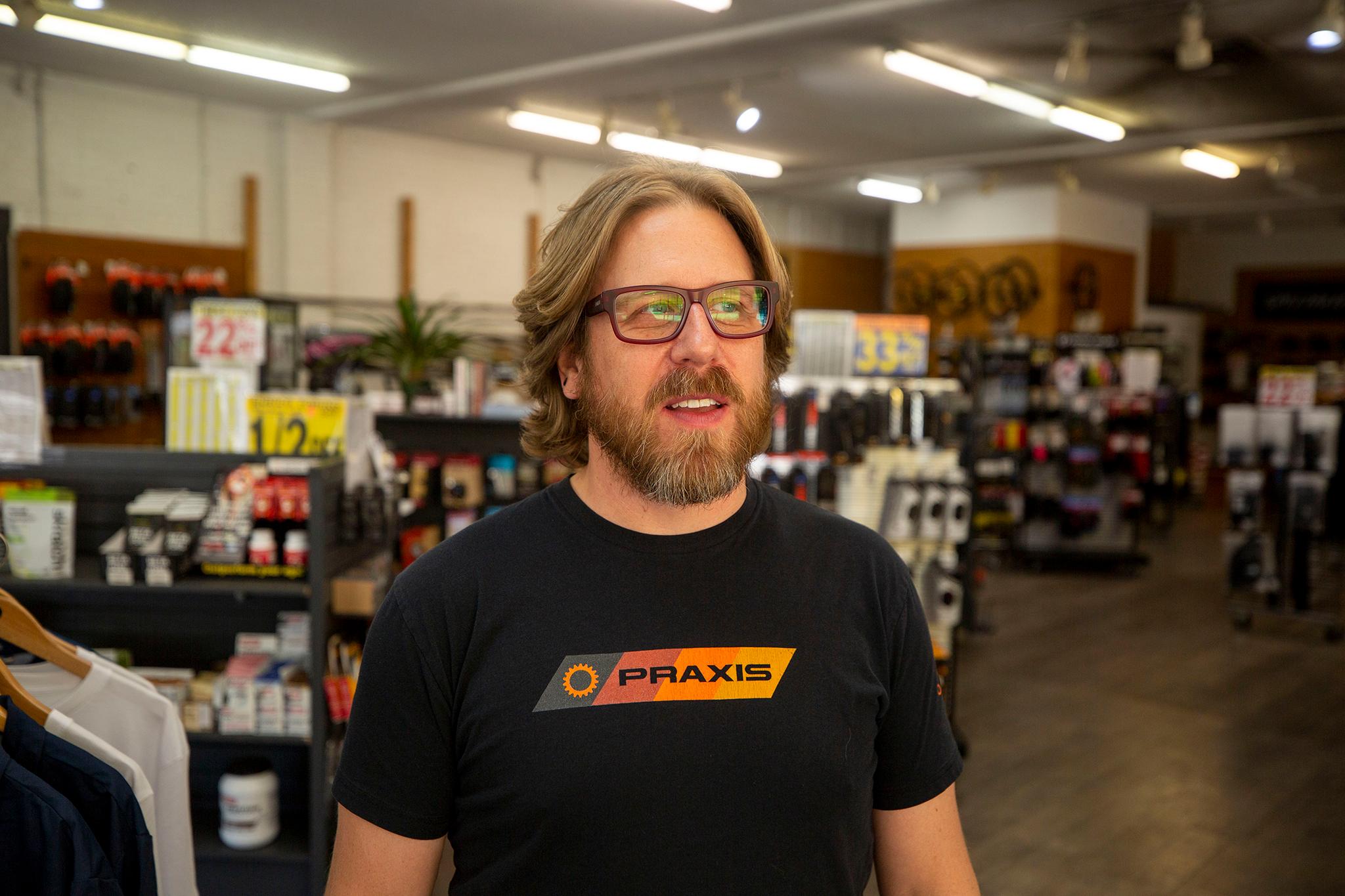
It wasn't just higher rent that is forcing Turin to close, Stejskal said.
Disruptions in the supply chain have slowed sales. Profit margins are slimmer than they were before. People are ordering bikes and supplies online instead of buying at brick-and-mortar shops, and the initial bike enthusiasm that drove sales during the first year of the pandemic has waned. The entire industry is in crisis, and the Golden Triangle is no longer as affordable for a small business as it once was. Finding an attainable new storefront in the area has proved impossible.
The business model itself may need some updating. As a medium-sized bike shop, Turin has neither the buying power of corporate bike stores nor the niche market of the smaller shops that have popped up around town. Unlike nearby EVO, which sells both winter sports gear and bikes, Turin is a one-sport store. Cycling enthusiasm runs from early spring through mid-summer, and sales slow down near July.
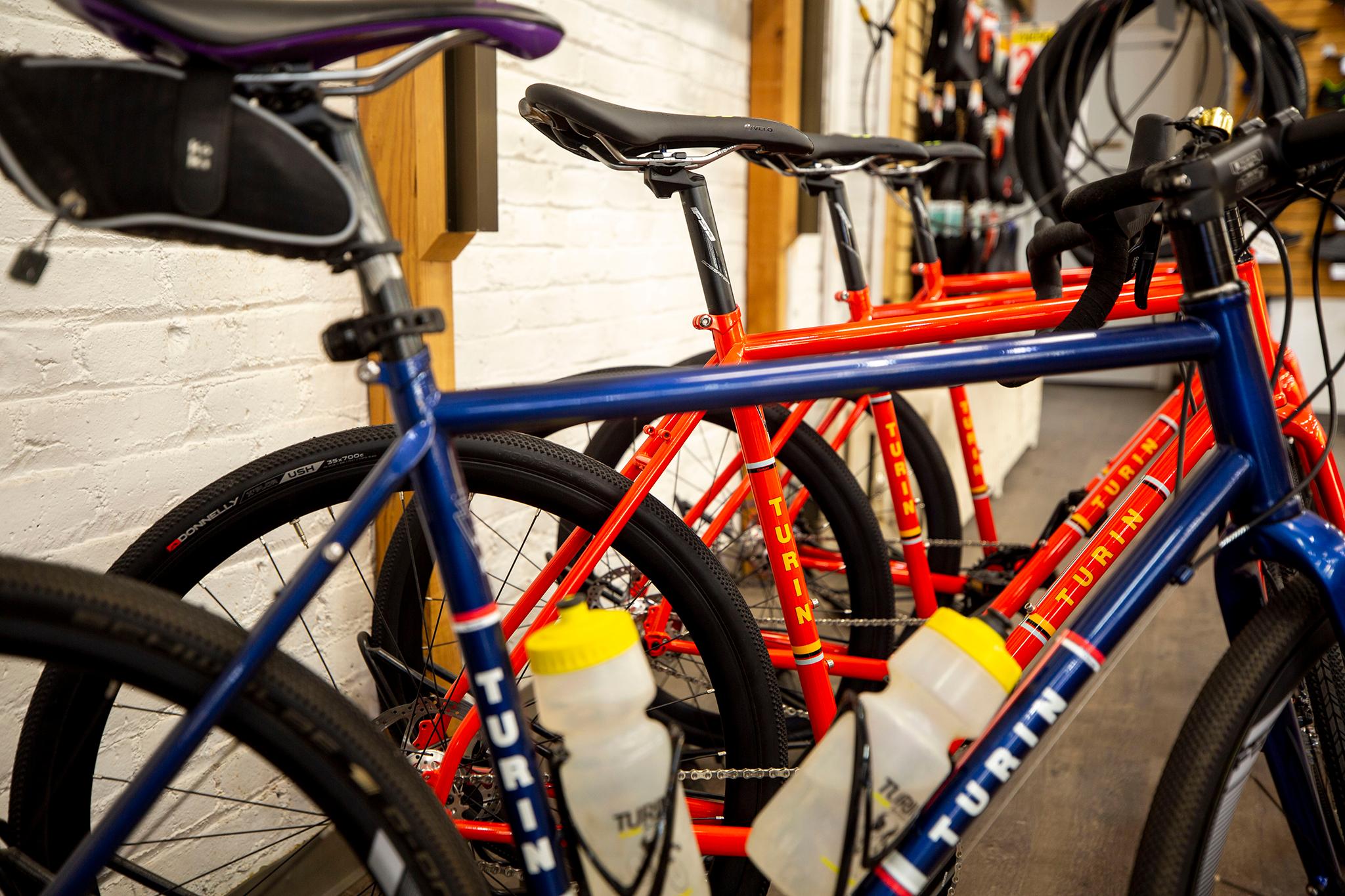
Add to that worries about the future. While the shop is currently well-staffed, the city's ever-increasing cost of living has made the low salaries of mechanics undesirable for many who know how to fix bikes. Convincing workers to come to a shop during a pandemic, when many needed to work from home, has been a hard sell, Stejskal said. So finding talented workers to stick around is increasingly tough.
"You can't blame everything on the pandemic, but it's certainly exacerbated a lot of other existing problems," Stejskal said.
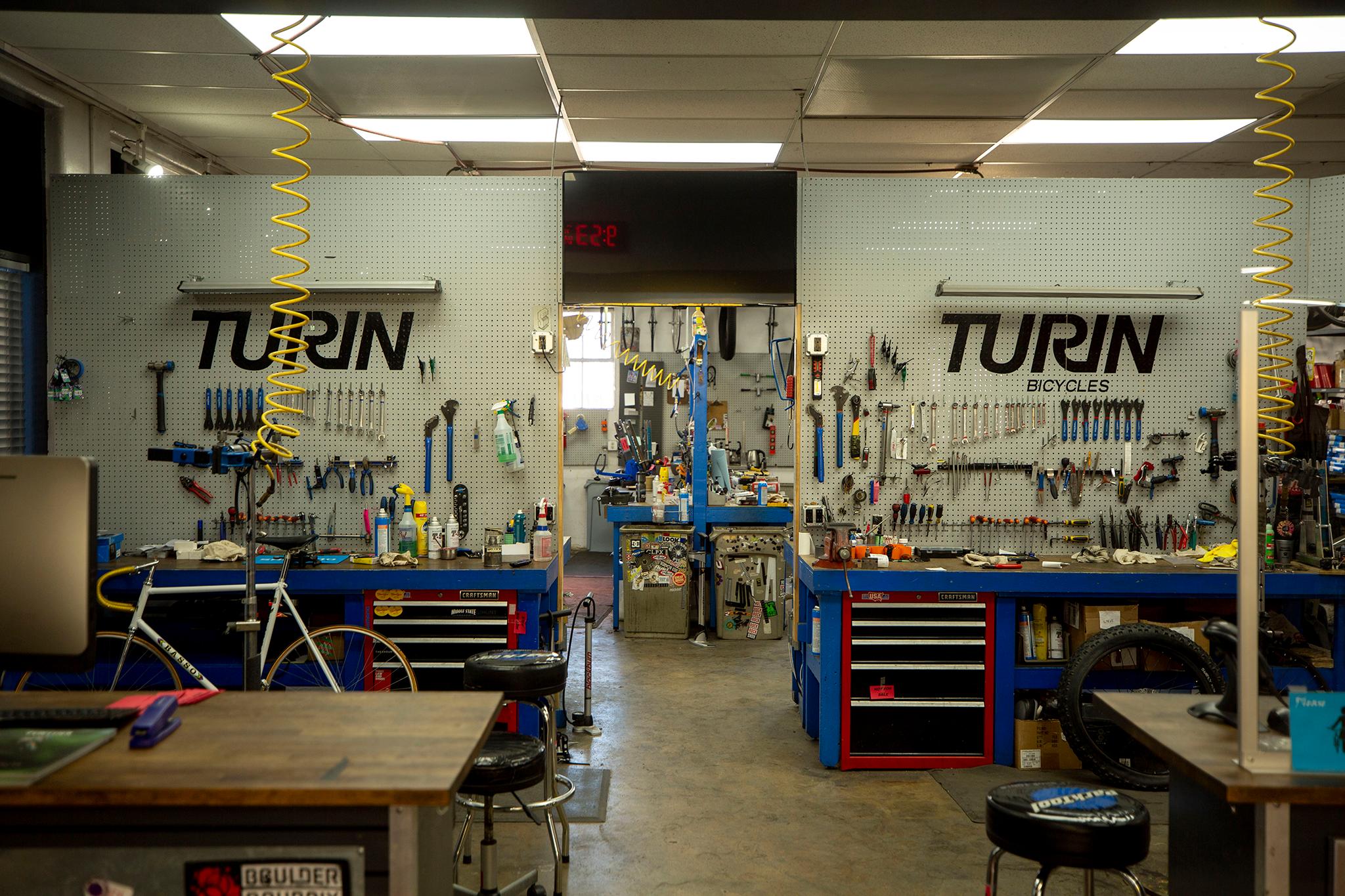
It's possible Turin might reopen at a different location in the future, said Stejskal, though the two general managers have no plans to re-open in 2022.
Many of the problems the shop is facing are industry-wide, but the general managers are still hopeful they can open elsewhere.
"When you add up all of those variables of high rent, timing, availability, shrinking margins, you know, all of those things, if you were to knock a couple of those variables out of the equation, then we don't get laughed out of the bank quite as easy," Stejskal said.
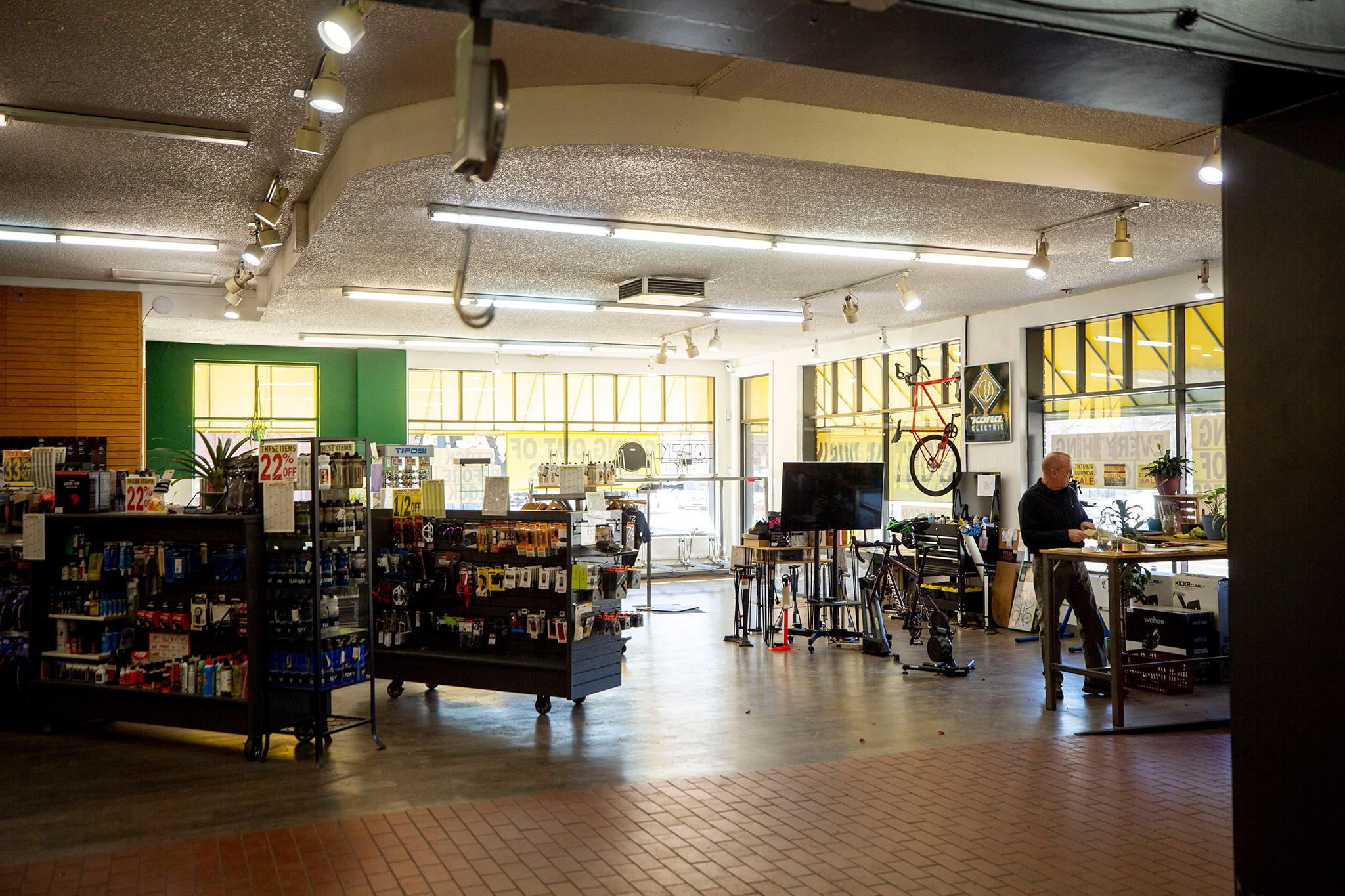
Re-opening somewhere in the neighborhood is one possibility the managers are considering -- even if Turin might not be able to return for a couple of years.
With more dense, mixed-use development coming to the Golden Triangle neighborhood and thousands of more potential customers moving to the area in the years to come, the co-general managers are certain Turin could serve an essential function and turn a profit if it could stay or reopen in the area.
Fine has given the general managers permission to use the Turin name if they decide to open a new bike shop, and they have been in talks with developers about the possibility of setting up ground-level retail in one of the many new developments coming to the area.
But before they open a new Turin -- or a shop under a different name -- they said they need a break.
"It's really hard to see around the corner of this," Stejskal said, "to see what we're doing next."

